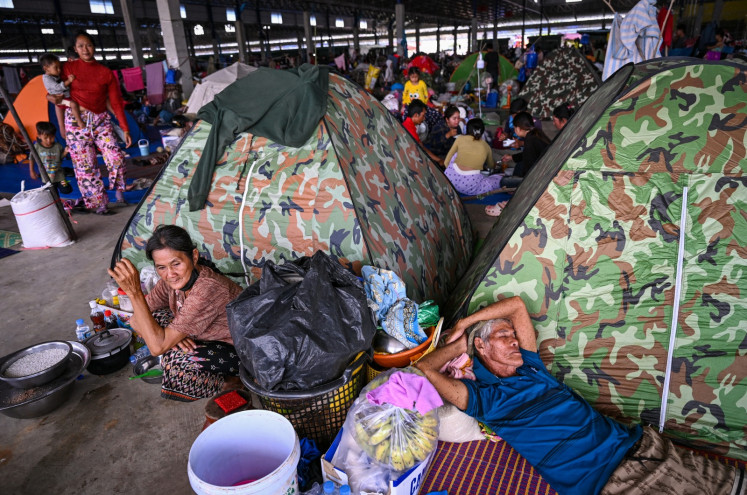Popular Reads
Top Results
Can't find what you're looking for?
View all search resultsPopular Reads
Top Results
Can't find what you're looking for?
View all search resultsHealth in post-pandemic era: Recover together, recover stronger
Countries need to take care of other health problems in the post-pandemic era that may have been neglected during the COVID-19 crisis.
Change text size
Gift Premium Articles
to Anyone

As we reflect on the COVID-19 pandemic, many Group of 20 (G20) countries have suffered greatly from high numbers of cases and deaths. In the post-pandemic era, and as countries shift to the “new normal” of living with the virus, Indonesia’s G20 presidency provides an important platform for strengthening solidarity and cooperation to collectively “recover together, recover stronger”.
The G20 countries faced a multitude of common health threats during the pandemic, which should point the way for post-pandemic needs and priorities.
First, many countries have had to deal with the acute care needs of severely ill patients during the pandemic and faced critical shortages, for example, of ventilators, oxygen and intensive care unit (ICU) beds for the critically ill. Many were also faced with the inability to protect their frontline healthcare workers, thousands of which lost their lives during the pandemic.
Second, countries need to be prepared for the long-term sequelae of “long COVID” where complications such as extreme fatigue, breathing difficulties, joint and chest pain, depression, anxiety and difficulty in concentrating can manifest for many months or even years after infection.
Third, countries need to take care of other health problems in the post-pandemic era, which may have been neglected during the COVID-19 crisis. This includes chronic diseases such as heart disease, cancer, diabetes and, importantly, mental health illness.
Related to this is the reality that many G20 countries still have very high prevalence of smoking which has been shown to be a key risk factor for chronic diseases, as well as for severe COVID-19 and tuberculosis. Data from Indonesia showed an increase in the number of smokers by nearly 9 million from 60.3 million in 2011 to 69 million in 2021, or 25 percent of the population. This worrying trend has also been accompanied by an increase in the prevalence of cancer, strokes, diabetes and chronic kidney disease in Indonesia, with dire repercussions on healthcare costs.
There is also evidence that smoking rates in many countries have increased during the pandemic as a result of stress induced by strict lockdowns and quarantine measures in many countries. It is also important to learn from other G20 countries on the implementation of regulations on tobacco harm reduction (THR) or smoke-free environments, and adopt the recommendations of many different studies and research comparing levels of risk of reduced harm interventions with combustible cigarettes.



















